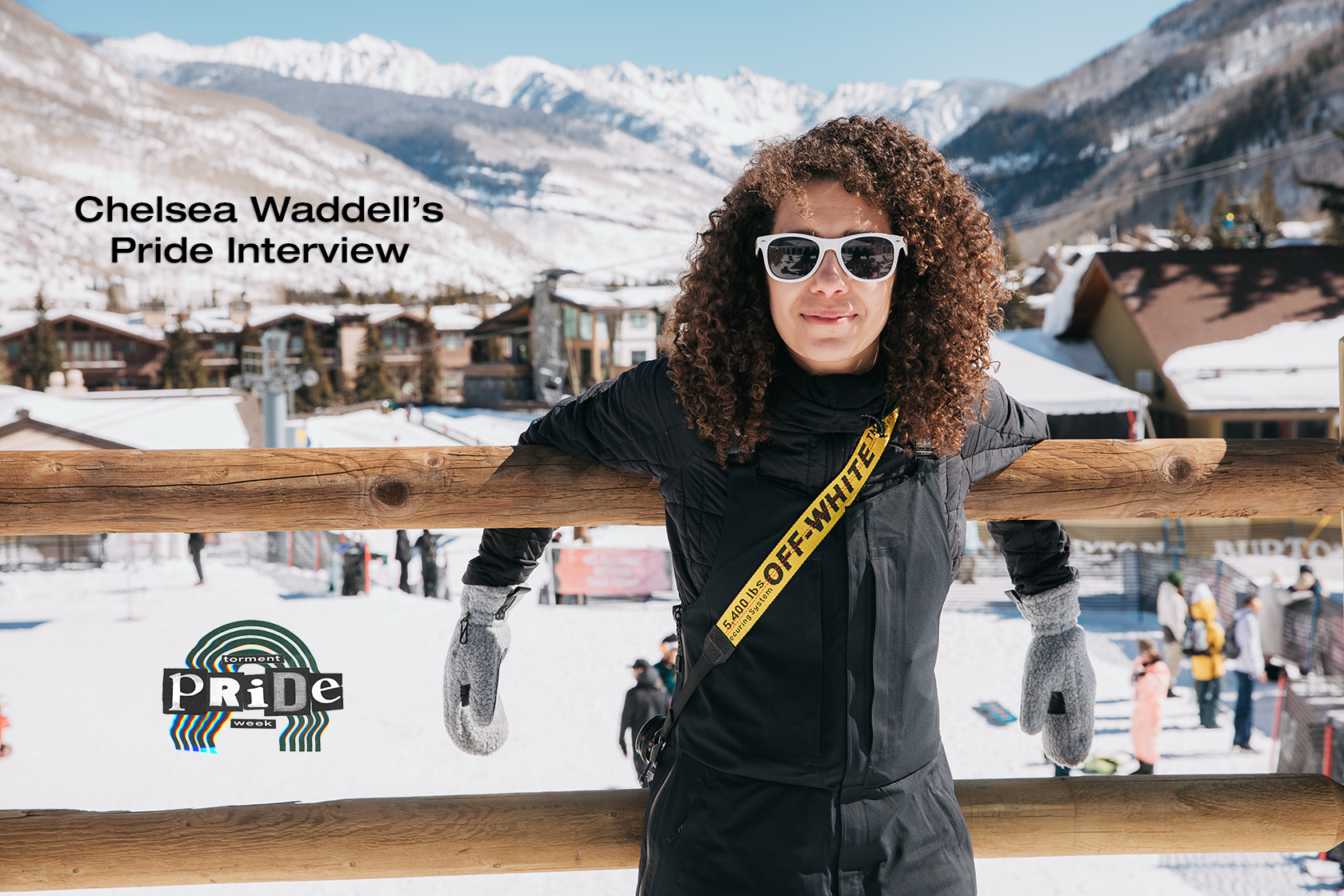
Introduction by Jill Perkins; Interview by Tanner Pendleton
I met Chelsea back in 2013 at High Cascade Snowboard Camp where she worked as an office employee. Aside from managing phone calls, handling logistics, and assuring hundreds of parents their children would be safe and happy, Chelsea also made camp a magical place where everyone felt welcomed. With open arms and a warm heart, Chelsea was my first beacon in the snowboard world. I will never forget her carving time out of her days to share with me, a total stranger, insight into her life and love for snowboarding. Her strength and passion have given me the courage to take a chance on my own dreams, and I know for a fact others feel the same. She continues to show us that this world can be a beautiful place if we, as individuals, work hard and true for the things we believe in.
Through her ability to buckle down, Chelsea has contributed in creating a more inclusive culture and industry as a whole. I’ve had the privilege to share in Chelsea’s ideas, conversations, and dreams while simultaneously watching her cross bridges that once seemed damn near impossible. For example, her tenacity and unbiased approach recently elevated her to the role of North American Athlete and Ambassador Marketing Manager at Burton. But more importantly, she consistently offers a perspective and a voice that is uniquely hers and inspiring to everyone. Throughout her ongoing journey, Chelsea constantly gives back to the snowboard community, which has now opened the doors for her to embark on her lifelong dream.
With love, Jill

Tanner: Hey Chelsea what’s up?
Chelsea: Hi Tanner! I'm in Vail right now with the squad for summer camp at Woodward Copper.
Who is the squad, Burton crew?
Yeah, the Burton team, it's tiring, but it's good.
Well, thank you for taking the time to do this. I know doing anything on a trip other than just surviving is a lot.
No, I really want to do it, so I'm hyped.
Okay let’s get into it. Where are you from and what got you into snowboarding?
I lived a little bit of everywhere growing up. My mom was in the military for 26 years, so I moved around a lot, but I've lived in Salt Lake City for a long time now. I learned to ski first, at Bogus Basin, when I was four, then I skied till I was eight. That’s when I saw snowboarders and wanted to try it. My mom took me to what was called Nordic Valley at the time, I think it’s called Wolf Creek now, and put me in a lesson, and I never skied again.
No way, eight years old. That's crazy. How old are you now?
I'm 28 now—so 20 years of snowboarding.
Amazing. So maybe jumping ahead a bit, but when did you come out?
I came out to my mom when I was 22. She was the first person I told, and I came out as bisexual. I just felt like that was more digestible. I told her over the phone, because I was ready right then to say it, and I knew if I didn't just do it right then and there, I might never. She took me to dinner the next day and she was actually the person that was like, "I don't think you're bisexual, I think you're probably just gay." And I was like, "Yeah, you're probably right." As far as friends go, I came out to a ton of people in my sphere at a snowboard premiere. I actually think it was Rendered Useless. I told everyone I could that night.
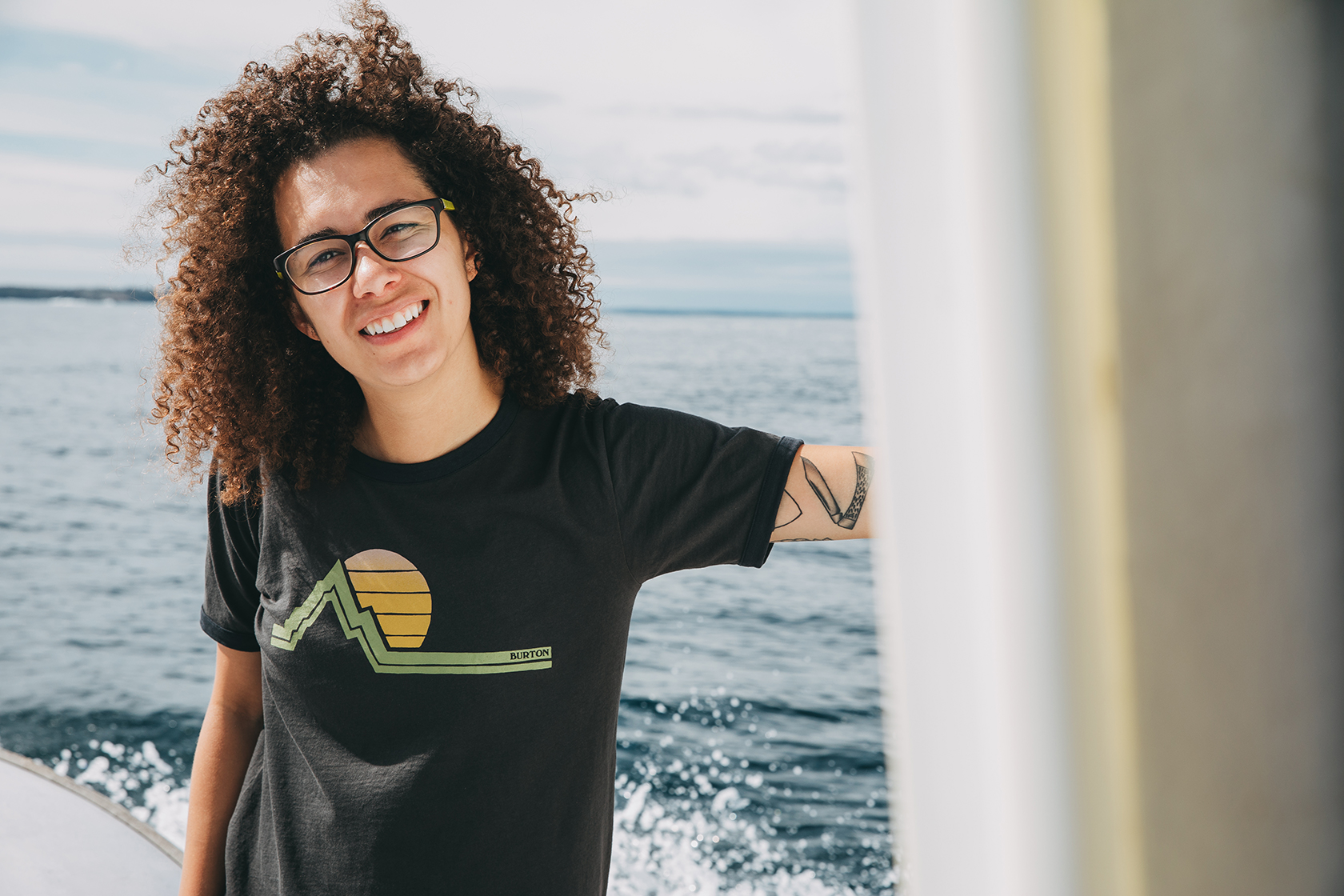
That's so awesome that you came out to your friends at a snowboard premiere. It seems like your queer life and your snowboard life have been intertwined since day one, which is rare.
Yeah. A lot of people think Utah is really conservative, and for the most part it is, but Salt Lake is this little oasis of pretty liberal people. It has a major university, and it's a bigger city, so a lot of people who live there are from a lot of different places, and that includes the snowboard community. So, when I came out in snowboarding, I didn't really know many out queer people in the industry. Honestly, I'm not sure if I knew of any, but for some reason I felt really comfortable coming out in snowboarding, which at the time was a very unique feeling. Honestly, I’m not entirely sure it’s that I felt comfortable coming out in snowboarding, as much as I just finally felt comfortable with myself. At that point I was just in a “take me or leave me” mindset.
That's so awesome, just making your rounds, telling everyone!
Mm-hmm. I was ready.
Since then how has your experience been being queer in the snowboard world?
I didn't really know anybody else in the industry who was queer and out at the time, but since then, it has just gotten easier. Some of my really good friends who were friends with me even before I came out have started to come out too. Some of my very best friends. And now that it's been five years since I came out, I feel comfortable in my skin, in and out of the snowboard world.
What is your experience being a woman in the snowboard world?
It's interesting. I feel like when I was younger, it was a lot harder. The confidence wasn't quite there, but I did have some awesome women in the industry to look up to. I always looked up to Susie Floros, Annie Fast, Lesley Betts, Mary Walsh, and a lot of other people. So there was a bit of visibility there. Also, a lot of women work at Burton, and a lot of them are at high level positions, so I always saw that it could be a path for me, but it was, and still is, hard. What's hard is people just assuming you can't keep up on the hill or whatever, or even just generally. Sometimes feeling like there's some positions out there that you can't have just because you're a woman and those positions traditionally were held by men.
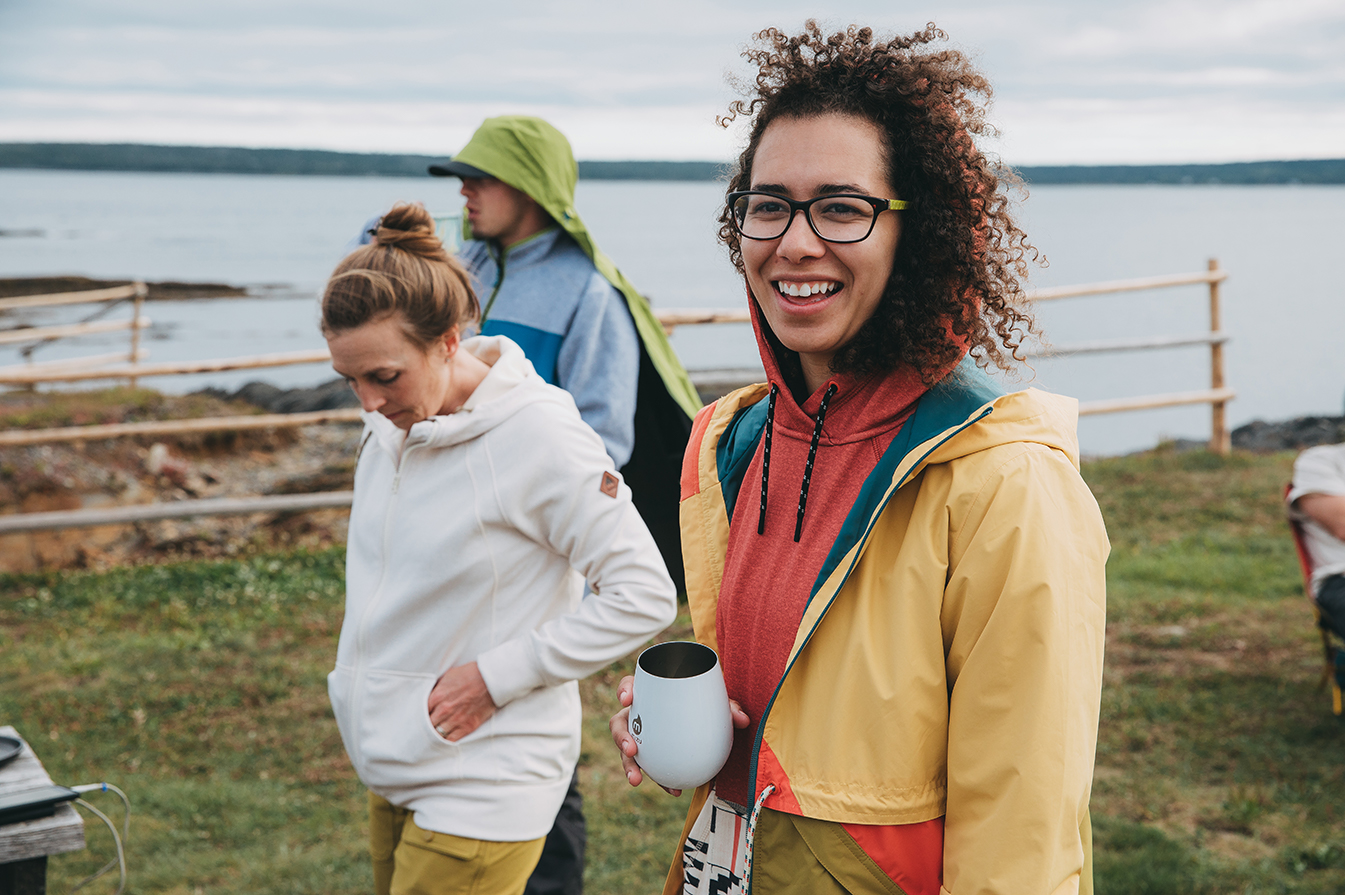
You mentioned people like Susie Floros, who was a guiding light for you in the industry. As more women enter snowboarding, start killing it, and getting support, what does that visibility mean for the next generation?
I don't think I would've believed that there was space for me in this industry without seeing other women do it first. After seeing them there was no doubt in my mind that it was possible. I think there are more and more women being incredibly influential–and not just influential in women's snowboarding, but just in snowboarding in general. As cheesy as it is to say, I really feel like the women in the industry before me walked so I could run, and I hope the women after me are sprinting.
What is your experience being Black in the snowboard world?
This one is interesting. I do want to acknowledge that I am a light-skinned Black person, which comes with its own level of privilege, but as a Black person in snowboarding, there’s not a lot of people to look up to. I always remember watching Gabby Maiden in the Peep Show Films, and she was the only one who looked even kind of like me, but at the same time there'd be these little weird microaggressions. I'd be at Mount Hood and people would think I was Gabby. We don't look anything alike. We both just happen to have similar colored skin and curly hair. So that's weird, getting mistaken as people all the time. No one likes to feel like they don't have their own identity. Especially, it being highlighted by the fact that we don't look anything alike. It's just like there's so few women of color, or Black women in snowboarding, that we must all be the same person. It’s kind of like thinking all Asian people look the same. It’s just not true, it’s racist. Other than that, it's just the lack of influence from people who look like you. It can just feel like a reminder that your people don't belong here.
That's heartbreaking.
You just don't see yourself represented in marketing or the media of snowboarding, so when I say seeing other women in snowboarding showed me there's a place for me, there's still this other layer where there aren't Black women in it, so is there really a place for me?
I think being a Black queer woman, you are forging a new path, as far as being visible for future generations that haven’t existed in snowboarding, which is just so amazing.
I'm trying. I think all the time about the layers that make me me, and how it hasn't been easy. I've worked really hard, and it turns out you can be a queer, Black woman, with a job in snowboarding. And not just any job, but the job you dream of.
By the way, congrats on your new job, tell me about it!
Oh, thank you! I just started as the North American Athlete and Ambassador Marketing Manager at Burton.
Wow.
So, I'm like the North American team manager, and I work with all the ambassadors as well.
No way. That's awesome.
It is, and I’m stoked. I’m honored. I never would've imagined a brand like Burton would hire a gay, Black woman to take on a role like this. Susie was the women's team manager for a long time, which was amazing, but I'm also thrilled that things aren’t separated by gender like that anymore. I'm literally here right now with six boys from the team. So, in all the ways I thought you couldn't be a woman, or Black, or gay and experience something like this, it was the hard work on my end, as well as time it took for the industry to open up a little bit, but now I'm here living my dream.
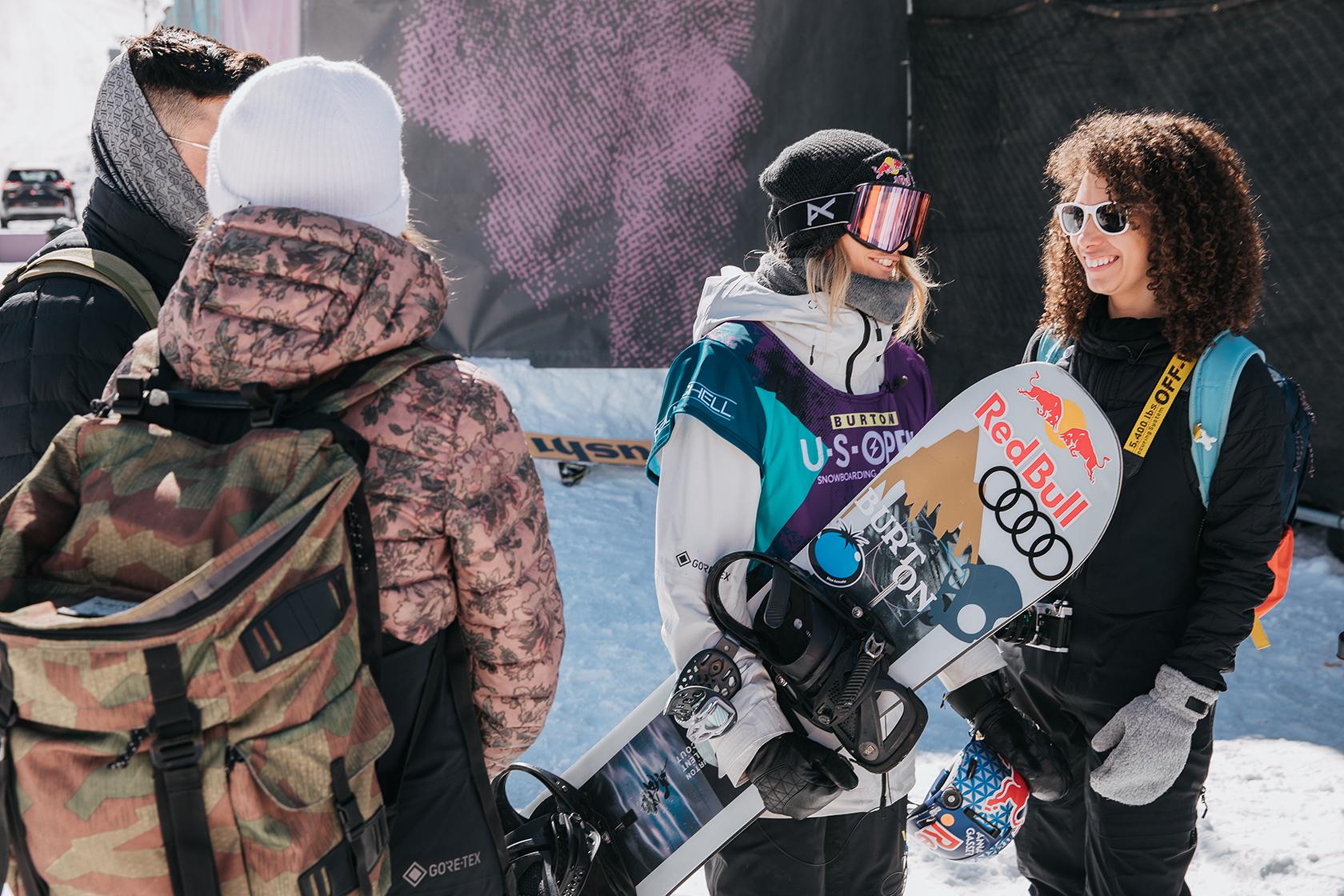
That is amazing. Congratulations. Being a team manager, you really have the opportunity to build the future in snowboarding...
Exactly, and that's part of the discussions I've had with the other people in team management, is bringing a new perspective and taking us into a new chapter with that perspective.
Now that we’ve discussed all these pieces of you and your experience in the industry, do you want to talk a bit about intersectionality?
Definitely. So I think intersectionality is super important to talk about because each piece of my identity as a gay Black woman matters, and they all intersect. Meaning, you can't look at me and see those things as separate. You have to see all of them collectively at the same time. Intersectionality is where all the different things that define us intersect. Being gay and Black is not the same as being white and gay, being a gay woman is not the same as being a gay man. You walk through life in different ways, and have different experiences because of these things. So, right where they meet in the middle I feel is where I exist as the truest version of myself. I'm not saying anything would've been necessarily different or easier if one of those pieces changed—well, maybe I do wonder if things would've been easier if one of those pieces were changed from my identity. Like if I were a man and I was gay and Black, or if I were a woman who was straight and was Black, I wonder if my journey would have been any easier. You never really know, but all those things do exist for me, and so right at the center is who I am and each piece matters.
So, this idea of intersectionality originated with the Combahee River Collective, a group of Black feminist lesbians in the 1970s. Their solution was to destroy these systems of oppression, with the end goal of liberating all people. In your opinion, what systems are in place today within our snowboard bubble that we can destroy to make room for a better future?
Well, the first thing we should destroy is the misconception that Black and Brown people are poor, because that's not necessarily true. So, before diving into how we can make snowboarding more accessible and affordable, we need to understand that it is accessible and affordable to a lot of people, we're just not welcoming them into our circle because they're not seeing people like them in it. That's the first thing for me. Not just assuming that Black and Brown people don't have the money to spend on skiing and snowboarding, because there are plenty of wealthy Black and Brown people out there. And then, looking beyond that to anybody of any race, color, ethnicity who might not have the financial freedom to buy a $1500 season pass and take time off work to ski and snowboard. I mean, lift tickets are ridiculously overpriced. Maybe I just don't know enough about that industry to understand why that is, but it's wild to me that you can get a snowboard for $400, but it's like $200 a day at some places. I would love to see more public parks and public areas used for small ski hills. I feel like a lot of people feel this way. I know there's one in Denver (Ruby Hill). Or even Woodward Park City is a great example where it's not free to ride there by any means, but they do monthly passes that are like $95. So, comparatively it's super inexpensive and you can go as much as you want. Honestly, I don't know if I could afford to snowboard if I didn't work in snowboarding.
For sure, it's ridiculous. I’m really excited for you to take on this new job. It seems like you're not just there to do what's been done, you're there to do something new, which I think is really awesome.
Right. Again, this is the job I've dreamt of since I was 15, I'm not afraid to say that, so I've worked really hard for it, but I'm also thankful to be given the chance. And I think the consensus is that we need a new perspective, and I can bring one. I also hope to be a mentor for younger riders who are coming up who either identify in similar ways as me, as well as those who want to learn how to be a better ally. I want them to know that they have someone they can come to who offers a safe space for them to mess up and ask questions to get better. As long as they are willing to get better.
For sure. I love the way that you said that, that ‘it's a safe space to mess up and ask questions to get better.’ While we're on that subject, do you have any words of wisdom for anyone who wants to be an ally?
I think it's really important to take the steps to educate yourself and try not to lean on your friends who identify in these different ways to teach you. Try to take some time to learn by yourself. But also, don't be afraid to ask questions. I think 99.9% of the time, if you're genuinely asking, "Is this terminology okay to use?" or whatever, it's better if you just ask instead of finding out later by offending someone. I think 99% of the time, people understand that you genuinely want to learn and grow, but you have to learn from your mistakes. I would love to see more people in snowboarding, especially professional snowboarders, talking about these topics, even if they don't identify as such. Let people know you're an ally. Because there's plenty of athletes who can come to me and ask me questions or confide in me, but it's different confiding in your peers and knowing that they're there for you, even if they don't identify in that way or even fully understand. Snowboarders, be there for other snowboarders and just let them know you're there for them.
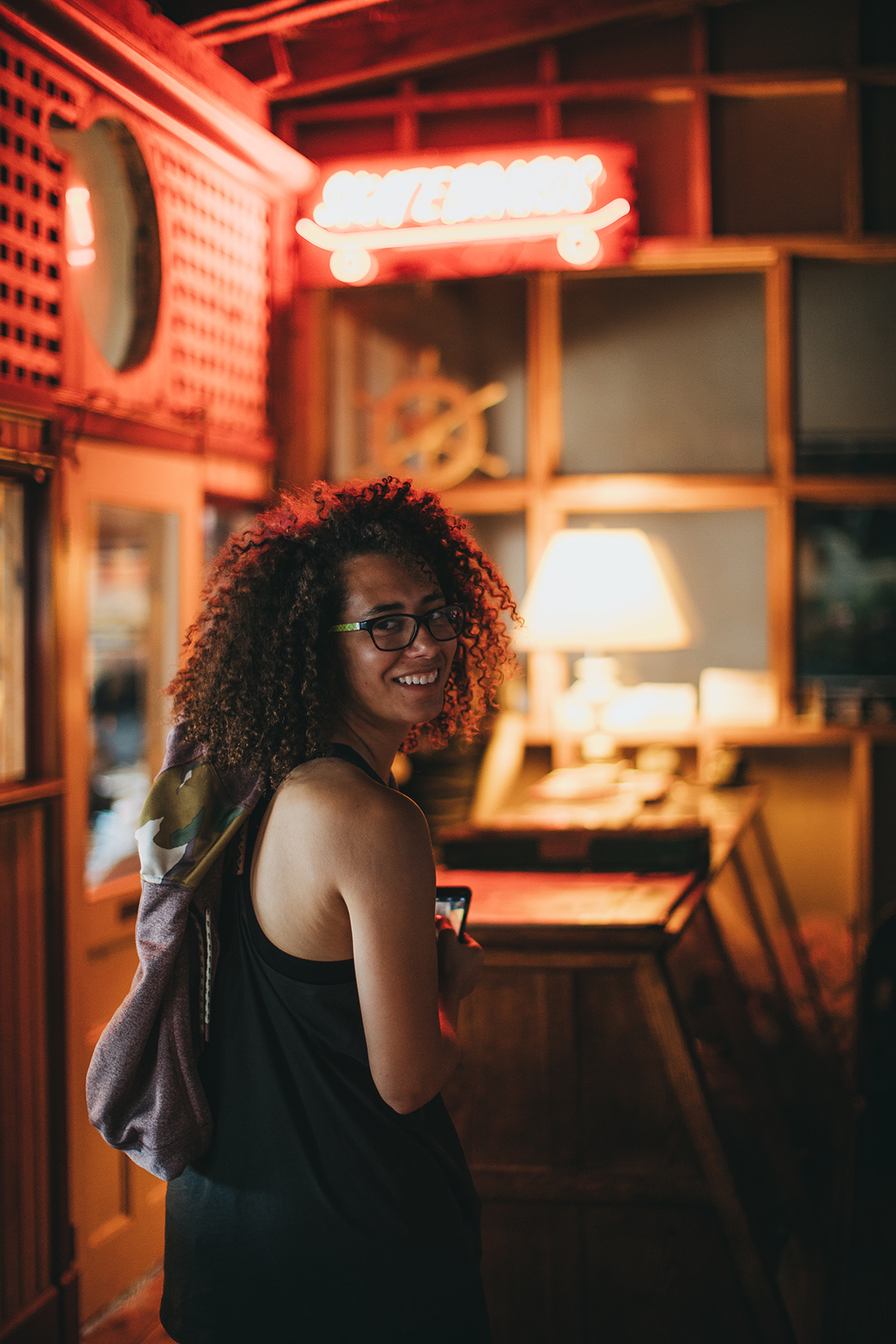
“I would encourage riders that have been around for a long time...to remember that younger riders look up to you and we have the opportunity to change a generation, in the way they think, speak, and act.”
One other thing that I think is really important is just listening.
Yes, listen to people. When someone tells you something, just believe them. You might not understand what a microaggression is and how just something small that someone says can be offensive to someone, but it's really not up to you to decide what's offensive or not. Be thankful for those who are willing to teach you, listen to what they have to say, and put it into practice.
For sure. That was so well put. Sometimes I pick up this vibe from the snowboard community that they’re walking on eggshells around myself and the queer community.
That's the weird thing, if you're walking on eggshells around someone, that's probably because you're afraid that you might say something that would offend them, right? It’s not expected for you to be perfect all the time, but to be willing to listen and learn. Usually, if someone is telling you that something you said is offensive but they're still talking to you the next day, they're probably just trying to help you out. But I've felt that way too, that I don't want people to think that I can't take a joke or that they can't be honest around me, or they have to watch what they say. It’s not like I’ve never said the wrong thing before. But at the same time, if “watching what you say” simply means not saying things that are tearing people down and hurting feelings, I don't think that's too much to ask.
For sure. It’s tricky because these microaggressions are so ingrained in our culture that with absolutely no malintent they might say something that’s offensive. And then it's this awkward thing where you're like, "I know you didn't mean to, but that was harmful because…." Hence, the walking on eggshells. But it’s really no big deal, it’s just a simple heads up.
I mean, I'm not going to get mad about it unless I've had to tell you repetitively. People slip up, and I know it's hard to change language. I've had to work to change some of my own language. I think when people keep it real with their friends about the things that they're saying being wrong, that's a way of showing love. It's protecting you from saying it in front of someone who's not going to show you the same level of love. And I think the thing is, I would encourage riders that have been around for a long time, just coming from a perspective of team management, to remember that younger riders look up to you and we have the opportunity to change a generation in the way they think, speak, and act. That said, I can tell them a lot of things about how to be better, but they're not going to listen to me as much as they're going to listen to their peers who come before them and say, "Hey, man. That's not cool. That could be detrimental to your career to say something like that. It's time to learn and change.”
I think you're so on the money there. Telling someone they messed up is not an attack. It's an act of love. You’re saying, “I do care about you, I want to maintain this relationship, and make it better.”
Exactly. And if I'm attacking you about it, you'll know the difference. That’s all I’ll say.
I love that [laughs]. So what’s your relationship to queer culture? Any queer icons that you look up to?
Oh, yes. I love queer culture in movies, music, sports. Again, I don't have a ton in snowboarding, but Emma and Jill are two of my best friends, and I look up to them a lot. And we don't really talk about it, but I think we've all helped each other along this journey. Outside of snowboarding, I'm a huge Leo Baker fan. I think they are just a sick skater, and super authentic and they're really blazing a trail in action sports, and just in sports in general. I'm a huge soccer fan in general and there's a lot of queer women in soccer, but Megan Rapinoe is really good at standing up for the queer community and speaking on behalf of the queer community, but she's also really good at elevating voices of the Black community, which I think is a great example of using your platform and your privilege to hold other people up. In music, I have a ton, but I really love Brandi Carlile. She’s a gay mom, married to her wife with two daughters and making her way in country and Americana music, which is a place that queer people don't really seem to belong. I guess I just like these outspoken trailblazers who move forward in their spaces without compromise.
"Before diving into how we can make snowboarding more accessible and affordable, we need to understand that it is accessible and affordable to a lot of people, we're just not welcoming them into our circle because they're not seeing people like them in it."
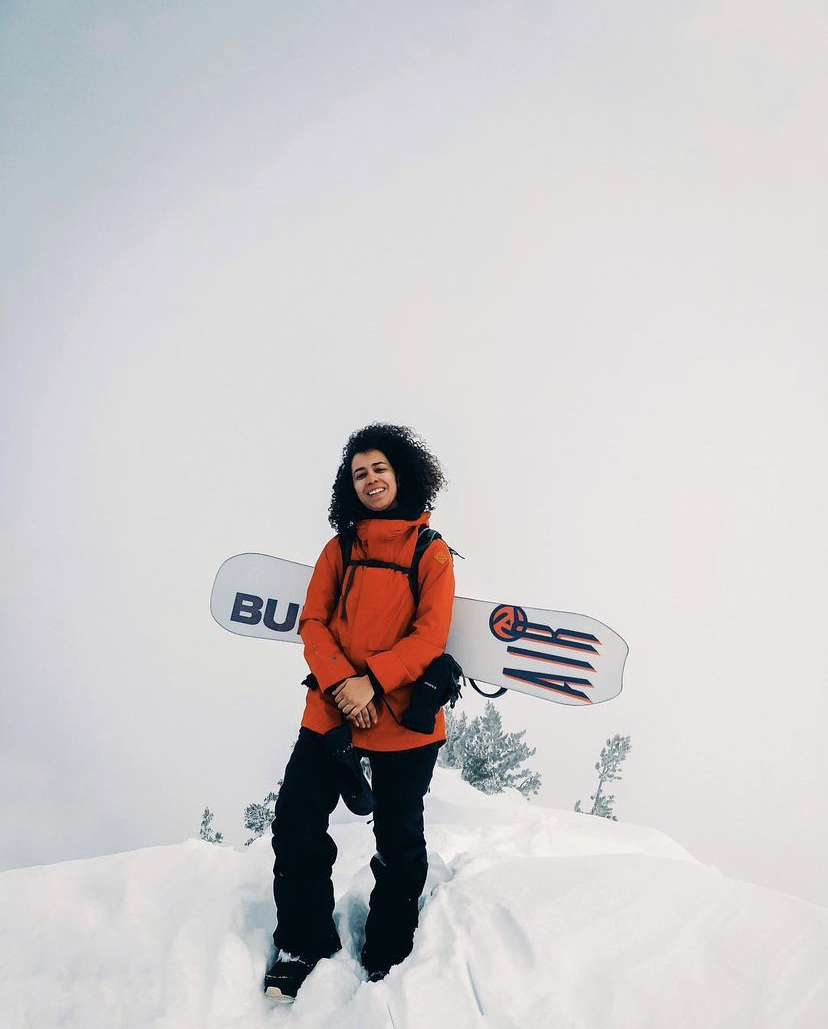
That's amazing. Since it’s Pride Month, what do you think brands could be doing to help beyond just rainbow washing their logo and having a one-off sale?
There's a lot of ways to do it right. But in my opinion, what's most important is letting queer people tell the story by passing the mic instead of trying to tell the story as a brand. I just want to hear from the queer people for a minute. And thinking internally, how are you elevating queer people in your business? Support them, educate the people working around them, give them opportunities to learn and grow, and the chance to reach higher level positions. All of this leads to more decisions being made by queer people, which leads to a new and diverse perspective. Feature queer people in marketing campaigns, add them to your snowboard team, and pay them to be featured in those things. Compensate them for their work. Hire them to design a board graphic or film your movie. Hire them and pay them, all year round. Not just during Pride Month.
There was this post going around that was essentially saying if all of these corporations and companies that were changing their logos to rainbows took a stance against these anti-trans bills that are happening, they might not pass. I don't know if Burton is on that level, but maybe it is… What can companies do behind the scenes to make a difference?
I guess I don't really know either. I think that is the thing with Burton, it's big in snowboarding, like it's a big global company, but it's not Target by any means. But at the same time, many hands make the load lighter. You can never have too many companies supporting doing the right thing, even if they're smaller. And it doesn't always have to be this company's going to donate a million dollars to this LGBTQ+ non-profit, but there's a lot you can do with things like lobbying. Burton does a lot around lobbying with Protect Our Winters, a lot of other brands do as well, going to DC and talking about these things and fighting for legislation to make change. There’s no reason snowboard companies can’t do that for the LGBTQ+ community too.
What you said, “many hands make the load lighter,” is beautiful and so true. If every company, big or small, took a stand together we might see some real change...
Yeah. And also, the other thing is companies can sign queer folks and trans athletes and give them money and opportunity, but you don't always have to talk about it. You're allowed to just do it without making it a thing.
100%. What does the future of snowboarding look like to you?
I definitely can't imagine the future of snowboarding without more inclusion. I think that what's interesting to me is that we all know it was built on anti-establishment. It was made for the outcasts and the misfits and somewhere along the way I think we got a little lost. It became more expensive and less accessible. And also, our world has changed, the skin tone of our world, and especially our country, has changed. It's darkened, and it will continue to do so. And that right there is a call to action for brands too. The world is getting more and more mixed race over time, it's just natural. That's just the way the world works. So, I would like to see snowboarding reflect the diversity that this country has. In all the different ways people identify, because I think when you love something, you should want to share it. The world isn't as Black and white as we like to try to think it is, and I think snowboarding's the perfect place and industry to really embrace and express that. Yeah, I’m rambling, but I just want to see more people who look like me and more opportunities for people who look like me, and I would just like to see such a beautiful industry full of beautiful people embracing even more beautiful people who are different from them.
Amazing, anything else you’d like to add before we finish up?
I guess one more thing I just wanted to say to the people is, just hold your friends accountable. Don't always leave it up to the woman or the person of color or the queer person to call them out. Call your friends out. We've heard that a million times, but really, please do, because it makes a difference. It sends a different message. I think if they're your friends, they'll listen to you. And it can be extra difficult to do it if you’re the minority yourself. I already feel really vulnerable in the world. Again, I'm super lucky and privileged, but there's still a level of vulnerability in being different for anyone. And so stand up for people who are different. Hopefully they'll understand and they’ll listen and we can all get better together.